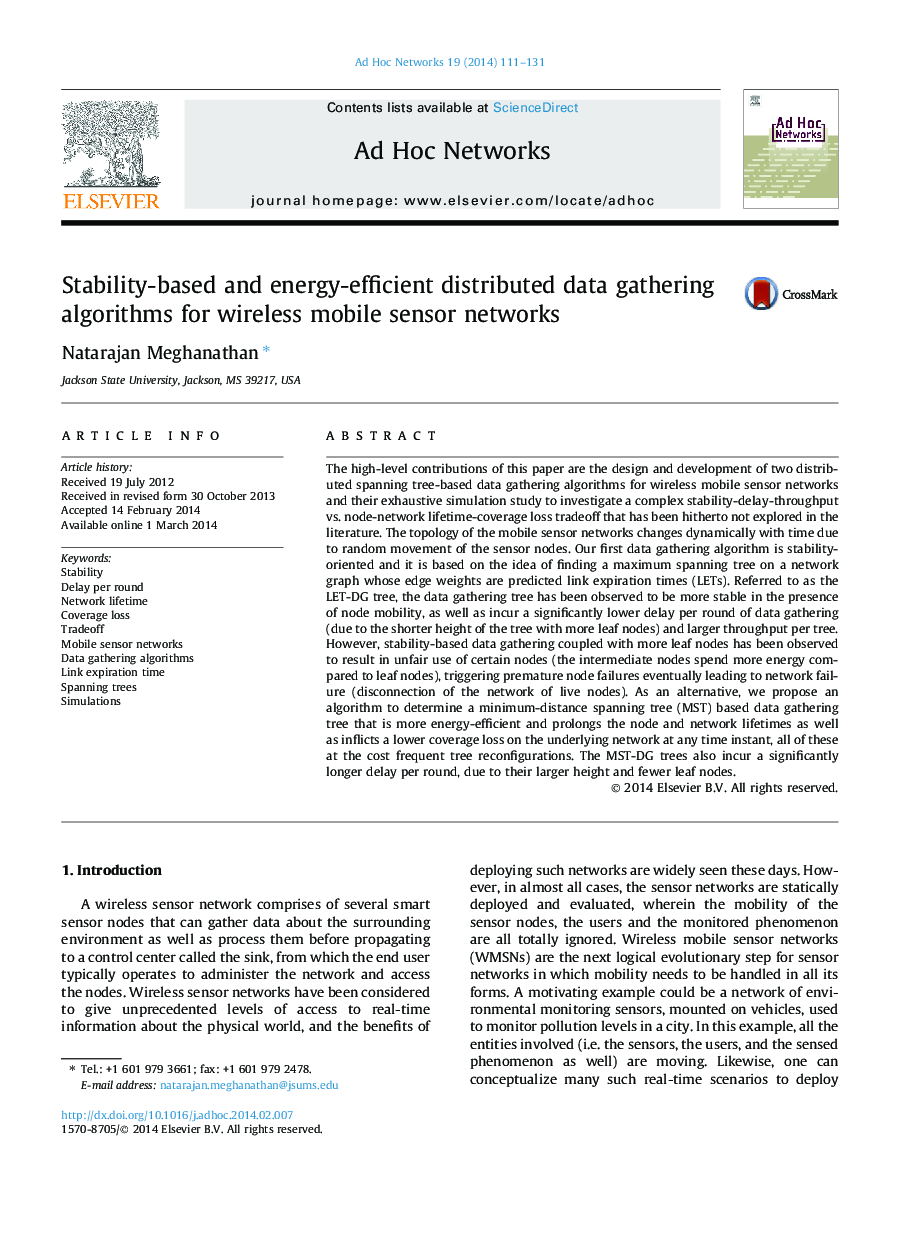| کد مقاله | کد نشریه | سال انتشار | مقاله انگلیسی | نسخه تمام متن |
|---|---|---|---|---|
| 444401 | 692975 | 2014 | 21 صفحه PDF | دانلود رایگان |
The high-level contributions of this paper are the design and development of two distributed spanning tree-based data gathering algorithms for wireless mobile sensor networks and their exhaustive simulation study to investigate a complex stability-delay-throughput vs. node-network lifetime-coverage loss tradeoff that has been hitherto not explored in the literature. The topology of the mobile sensor networks changes dynamically with time due to random movement of the sensor nodes. Our first data gathering algorithm is stability-oriented and it is based on the idea of finding a maximum spanning tree on a network graph whose edge weights are predicted link expiration times (LETs). Referred to as the LET-DG tree, the data gathering tree has been observed to be more stable in the presence of node mobility, as well as incur a significantly lower delay per round of data gathering (due to the shorter height of the tree with more leaf nodes) and larger throughput per tree. However, stability-based data gathering coupled with more leaf nodes has been observed to result in unfair use of certain nodes (the intermediate nodes spend more energy compared to leaf nodes), triggering premature node failures eventually leading to network failure (disconnection of the network of live nodes). As an alternative, we propose an algorithm to determine a minimum-distance spanning tree (MST) based data gathering tree that is more energy-efficient and prolongs the node and network lifetimes as well as inflicts a lower coverage loss on the underlying network at any time instant, all of these at the cost frequent tree reconfigurations. The MST-DG trees also incur a significantly longer delay per round, due to their larger height and fewer leaf nodes.
Journal: Ad Hoc Networks - Volume 19, August 2014, Pages 111–131
